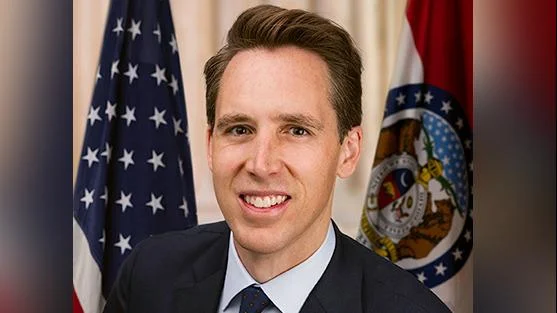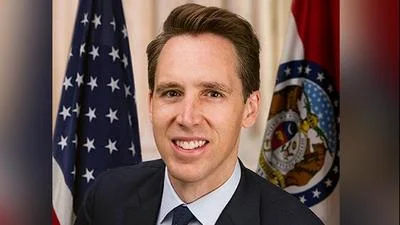U.S. Senator Josh Hawley | Official U.S. Senate headshot
U.S. Senator Josh Hawley | Official U.S. Senate headshot
U.S. Senators Josh Hawley (R-Mo.), Peter Welch (D-Vt.), and Amy Klobuchar (D-Minn.) have introduced the ETHIC Act, a bipartisan bill aimed at addressing the use of "patent thickets" by pharmaceutical companies. The legislation seeks to prevent what its sponsors describe as anticompetitive practices in the U.S. patent system that can lead to higher prescription drug prices.
Senator Hawley stated, “Big Pharma knows exactly what it’s doing in monopolizing the U.S. patent system: driving up drug costs for Americans while preventing generic-drug manufacturers from getting their foot in the market. This bipartisan bill would break up the anticompetitive ‘patent thickets’ that pharmaceutical companies have abused to the detriment of the American patient.”
Senator Welch commented on the long-standing nature of these practices: “For decades, Big Pharma has exploited U.S. courts and the patent system through anti-competitive practices that prevent generic and biosimilar competitors from entering the market, forcing Vermonters to pay more out of pocket for life-saving drugs. It’s outrageous, and it’s gone on for far too long,” said Senator Welch. “I’m proud to join my colleagues in introducing the ETHIC Act to stop pharmaceutical companies from abusing the patent system and lower prescription drug prices for patients across the country. Congress must pass our legislation to cut drug costs for families and streamline access to care.”
The term "patent thickets" refers to collections of overlapping patents that can make it difficult for other companies to introduce new technology or generic alternatives, especially in pharmaceuticals where a single medication might be protected by multiple patents covering various aspects such as compounds, formulations, manufacturing processes, or delivery methods.
While some overlap is inherent due to complexities in drug development, lawmakers say that certain strategies are used by pharmaceutical firms specifically to extend market exclusivity after initial patents expire—thereby delaying entry of cheaper generics.
If enacted this year, the Eliminating Thickets to Improve Competition (ETHIC) Act would place limits on how many patents can be asserted against generic or biosimilar manufacturers by allowing only one patent per "terminally disclaimed group." If one patent within such a group is invalidated by courts, all similar patents would also be struck down under this rule.
Supporters claim that these measures could save $16 billion over ten years and emphasize that changes would apply only within pharmaceuticals when actions are taken against generic or biosimilar producers; other industries would not be affected.






 Alerts Sign-up
Alerts Sign-up